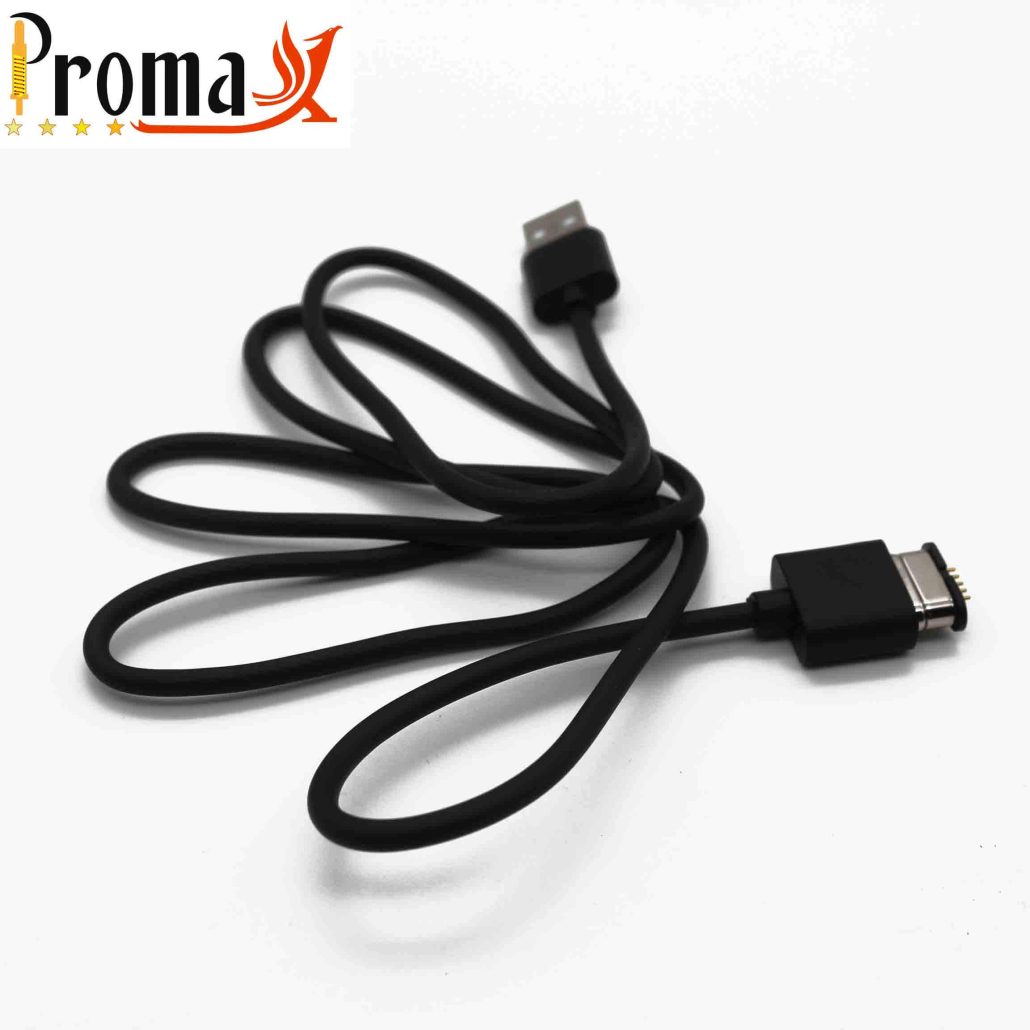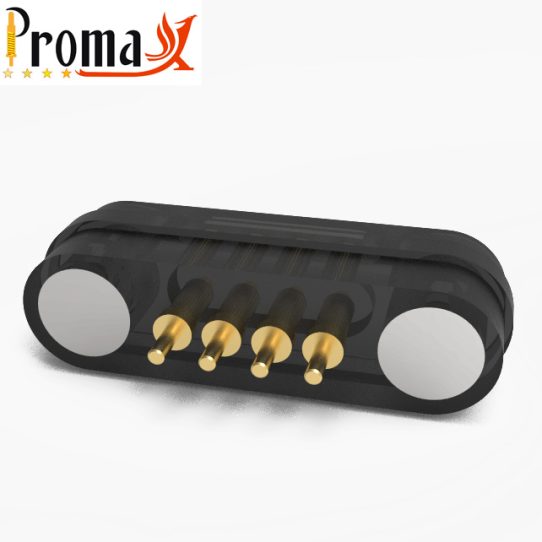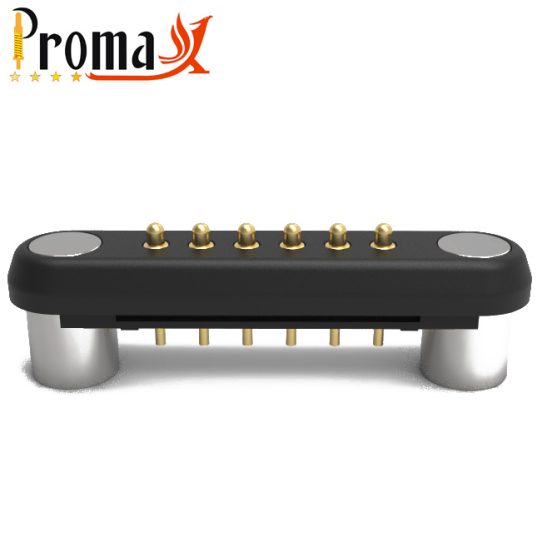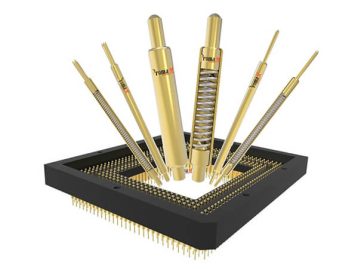Last Updated on August 10, 2023 by Tony
In industrial automation and technology, reliable connections among devices are crucial. Even a little interruption or signal loss can have significant consequences. It can cause downtime, decreased productivity, and potentially costly equipment damage.
Enter magnetic electrical connectors, a solution gaining popularity in the industry. But what exactly are magnetic electrical connectors, and how do they work? This blog article is your guide to the fascinating world of industrial connectivity. We will explore magnetic connectors in Industrial Applications.
Whether you’re an engineer, technician, or interested in the latest advancements in industrial technology, this article is for you. So, let’s discover how magnetic electrical connectors can take your industrial applications to the next level.
Magnetic Electrical Connectors
Picture this: you’re trying to connect two wires, but they won’t stay together. Every time you think you’ve got it, they slip apart. It’s frustrating, time-consuming, and even dangerous if the wires carry high-voltage electricity. That’s where magnetic electrical connectors come in.
In industrial applications, magnetic electrical connectors solve the age-old problem of unreliable connections. Instead of trying to twist wires together or rely on clunky traditional connectors, magnetic connectors use the power of a magnetic field to create a secure and reliable connection.
They use magnets to join the two ends of the connection and ensure a strong and stable connection. They offer improved signal integrity and reduced electromagnetic interference. It makes them ideal for applications where reliable and high-quality connections are critical.
With easy installation, use, and maintenance, they offer a cost-effective and efficient alternative to traditional connectors.

Common Magnetic Connectors in Industrial Applications
1. Magnetic Circular Connectors
These connectors consist of a circular housing and a plug with several pins. A magnetic force holds the plug in place, allowing easy and quick connection and disconnection.
2. Magnetic Power Connectors
These connectors are designed to handle high power and current loads. They are common in industrial applications where a secure and reliable power connection is critical.
3. Magnetic USB Connectors
These connectors use magnetic force to attach and detach the USB cable from the port. They are often used in industrial environments where the USB port may be exposed to dust, dirt, or other contaminants.
4. Magnetic RJ45 Connectors
These connectors are used for Ethernet connections and rely on the magnetic force to keep the connector in place.
Magnetic Connectors Vs. Traditional Connectors in Industrial Applications
In industrial applications, magnetic connectors have emerged as a superior alternative to traditional connectors. They provide a faster and more convenient method of connection and disconnection, optimizing efficiency and saving time. Furthermore, magnetic connectors cut the need for mechanical latches and other locking mechanisms, which are susceptible to wear and tear. Preventing mechanical failure is crucial in maintaining productivity and minimizing downtime, and magnetic connectors offer a reliable solution. Also, their ability to withstand environmental factors like moisture, dust, and dirt makes them a wise choice for industrial applications.

Benefits of Using Magnetic Electrical Connectors in Industrial Applications
-
Improved Signal Integrity and Quality
Magnetic electrical connectors offer better signal integrity and quality compared to traditional connectors. The magnetic force creates a more secure and stable connection, reducing signal loss or degradation. It means the transmitted signals are more reliable and accurate, improving performance and productivity.
-
Reduced Electromagnetic Interference (EMI)
Electromagnetic interference (EMI) is a common problem in industrial settings. It can cause disruptions and distortions in electrical signals. Thus it leads to errors, malfunctions, and downtime. Magnetic connectors can reduce EMI as the magnetic force creates a shield to block electromagnetic waves from interfering with the electrical signals. It leads to more stable and accurate signal transmission and reduced downtime.
-
Increased Reliability and Efficiency
Magnetic electrical connectors are highly reliable and efficient. With their ability to create a secure and stable connection, magnetic connectors are less prone to damage or failure. Thus, it reduces the chances of downtime and repair costs. Industrial applications that need frequent connection and disconnection can enjoy the time-saving and efficient nature of magnetic connectors, which are easy to connect and disconnect.
-
Easy to Install, Use, and Maintain
Magnetic electrical connectors need no special tools or equipment to connect and disconnect. It makes them a user-friendly solution for any industrial application. Their superior durability and resistance to wear and tear means they need minor maintenance and replacement, reducing costs and increasing uptime in industrial applications.
-
Cost-effective Solution
Magnetic electrical connectors are like the superheroes of the industrial world as they are cost-effective, efficient, and reliable. Their affordability, ease of installation, and reduced maintenance and replacement needs make them an ideal investment for any business looking to boost productivity and profitability. By providing a secure and stable connection, they reduce the risk of downtime, repair costs, and signal loss. It ensures smooth and uninterrupted operations. With their powers, they can help businesses beat industrial challenges and emerge as champions of efficiency and profitability.

Examples of Magnetic Electrical Connectors in Industrial Applications
-
Automation and Robotics
Magnetic electrical connectors are common in automation and robotics systems that need frequent connection and disconnection. For example, they connect sensors and other components. They offer quick and easy connection and disconnection, which saves time and increases efficiency.
-
Medical Equipment and Devices
Magnetic electrical connectors are also used in medical equipment and devices, where reliable and secure connections are critical. They are also common in MRI machines, where traditional connectors can interfere with imaging. They offer a reliable and secure connection without interfering with the imaging process.
-
Aerospace and Defense Systems
Magnetic electrical connectors are used in aerospace and defense systems where again reliability and durability are critical. These connectors can withstand extreme temperatures, shock, and vibration, making them ideal for planes and military vehicles.
-
Renewable Energy and Power Distribution
Their ability to handle high power and current loads makes them a go-to choice for renewable energy and power distribution systems. Magnetic electrical connectors are an efficient solution for wind turbines, solar panels, and other renewable energy systems. They ensure reliable and consistent power delivery even under challenging conditions.

Challenges in Magnetic Electrical Connectors in Industrial Applications
1. Magnetic Field Interference
Magnetic electrical connectors rely on the principles of magnetic induction to establish a connection, making them susceptible to interference from other magnetic fields in the environment. This can lead to disruptions in the connection and loss of data or power.
2. High-Temperature Environments
Industrial applications often involve high-temperature environments, which can affect the performance of magnetic electrical connectors. High temperatures can cause the magnets in the connectors to lose their strength and lead to a weaker connection.
3. Corrosion and Contamination
In industrial environments, connectors are often exposed to harsh chemicals and contaminants that can corrode the connectors. Corrosion can weaken the connection and cause the connector to fail, leading to downtime and maintenance costs.
4. Compatibility
Compatibility between different magnetic electrical connectors can also be a challenge in industrial applications. There are different types and standards of magnetic electrical connectors, and not all connectors are compatible. This can create challenges when connecting different equipment and devices.
5. Maintenance and Replacement
Installing and maintaining magnetic electrical connectors may require special tools and equipment. Plus, it can be challenging to find replacement parts, resulting in longer downtime and increased maintenance expenses. It’s vital to choose the best-suited magnetic electrical connectors for your projects to address these challenges.

Choosing and Implementing Magnetic Electrical Connectors in Industrial Applications
1. Compatibility with Existing Systems
Magnetic connectors may not be compatible with all equipment or systems, so ensure the connectors can be integrated into the existing setup. These issues can also lead to extra costs and delays, so verify compatibility before purchasing.
2. Environment and Operating Conditions
The environment and operating conditions of the industrial application should also be considered when choosing and implementing magnetic electrical connectors. Temperature, humidity, dust, and vibration affect their performance and durability. Choose connectors that can withstand the specific environment and operating conditions to ensure reliable and long-lasting performance.
3. Cost and Performance Considerations
Cost and performance considerations are also important when choosing and implementing magnetic electrical connectors. While they offer high signal integrity and reduced EMI, they may also come at a higher cost than traditional connectors. Balance the cost and performance considerations to ensure the chosen connectors offer a good return on investment.
4. Maintenance and Repair Considerations
Maintenance and repair considerations should also be considered when choosing and implementing magnetic electrical connectors. Choose connectors that are easy to maintain and repair and have a plan for any necessary maintenance or repairs to cut downtime and costs.
Conclusion
As technology marches on, keeping up with the latest and greatest connectivity solutions is vital. And when it comes to efficiency, productivity, and profitability in industrial settings, magnetic electrical connectors are leading the charge. These connectors are prime examples of how innovation can help us stay connected and ahead of the game. So if you want to keep your systems running, switch to magnetic electrical connectors. Your bottom line will thank you! Thank you for taking the time to read this article, and we look forward to bringing you more informative and engaging content in the future on our blog.










